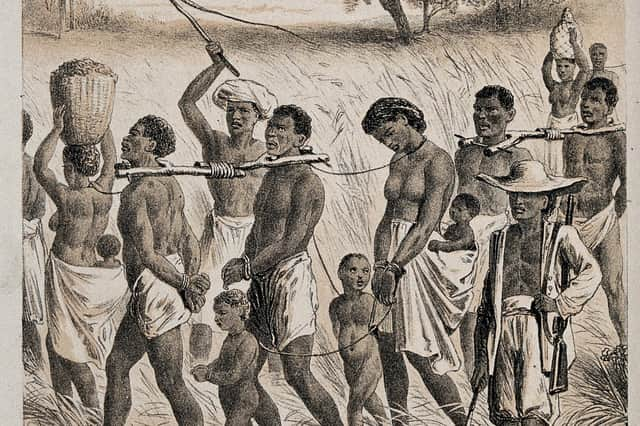Spotlight falls on North East and its deep links to slavery


A two-day online conference – Colonial Connections & North East Scotland – will take place on Thursday and Friday as part of a wider move to recognise the links between Aberdeen, the surrounding area and colonial wealth.
It follows moves by Glasgow, Edinburgh, Bristol and Liverpool to face the impact that slavery and the associated riches of plantation owners contributed to the making of their cities.
Advertisement
Hide AdAdvertisement
Hide AdThe North East’s involvement in the slave trade was extensive with many of the area’s prominent rural landowners profiting from economic ties with the Caribbean and southern states of America, both as businessmen in the triangular traffic and as plantation owners directly involved in sugar production.
Matthew Lee, a PhD student at the university, who is one of the conference organisers, said: “Our conference will explore the involvement of individuals from North East Scotland in Britain’s growing empire during the 18th and 19th centuries and will discuss the hidden history of the people and areas impacted by the many settlers, soldiers, planters, magistrates, pirates and missionaries from the regions of Scotland’s North East that now constitute Aberdeen, Aberdeenshire, Moray and Angus.”
Teaching fellow Dr Eloise Grey, of Aberdeen University and Dr Désha Osborne from Hunter College, City University of New York, will also lead the event.
Prominent figures to be examined during the conference include soldier Charles Gordon of Buthlaw and Cairness, an absentee slave-owner and proprieter of the Georgia estate in Trelawny, Jamaica, where sugar and rum was produced on a large scale.
He reportedly built Cairness House, near Lonmay – designed by architect James Playfair – using the profits from the estate and the enslaved people upon it with his story to be examined at the conference by independent scholar Dr Alan Short.
Dr Gilbert Ramsay, an Episcopalian minister from Birse in Aberdeenshire, will also be discussed. He moved to Antigua to preach in 1686 and went on to profit from the proceeds of slavery in Barbados, with the minister sharing part of his wealth to set up several legacies for the education of young people back home.
Some of his money was used to set up the primary school and fund a schoolteacher in his home village with heritage consultant Sian Loftus to discuss his legacy.
Aberdeen University’s own connections to slavery, including those forged through funding, will be explored by Dr Richard Anderson, a lecturer in the history of slavery.
Advertisement
Hide AdAdvertisement
Hide AdThe most prominent marker of these links is the Powis Gate, just south of King’s College, which was funded by the city’s Leslie family after they received compensation following abolition of slavery in Britain’s Caribbean colonies in 1834.
Several medical graduates from the university also went to Jamaica, where they both practised as doctors and owned plantations and slaves.
The conference is supported by the university’s Museums and Special Collections and the Institute of Advanced Studies in the Humanities at the University of Edinburgh, with the National Trust for Scotland and Historic Environment Scotland also represented.
The conference is free and open to all. Places can be booked at www.abdn.ac.uk
A message from the Editor:
Thank you for reading this article. We're more reliant on your support than ever as the shift in consumer habits brought about by Coronavirus impacts our advertisers.
If you haven't already, please consider supporting our trusted, fact-checked journalism by taking out a digital subscription.
Comments
Want to join the conversation? Please or to comment on this article.
